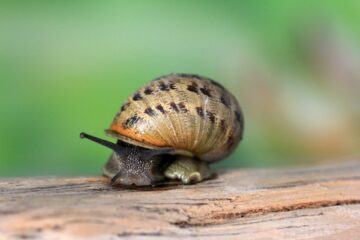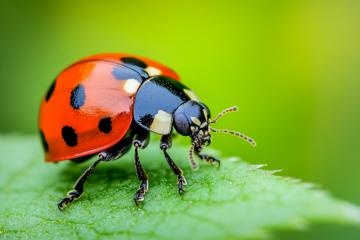If you have a garden, you probably know how frustrating it can be to deal with pests that eat or damage your plants or vegetables. But before you reach for chemical pesticides, consider using organic pest control methods instead. Not only are they safer for the environment, but they can also be just as effective.
In this ultimate guide to organic pest control in your garden, we’ll show you the top methods for keeping pests at bay without resorting to harmful chemicals.
Organic Pest Control top tips
- Companion planting
One of the easiest ways to prevent pests from attacking your plants is by using companion planting. This means planting different crops together that can help each other repel or attract certain pests. For example, marigolds are known to deter nematodes and other soil-dwelling insects, so planting them around your garden can help protect your other crops. - Natural predators
Another organic method of pest control is to encourage natural predators in your garden. Ladybugs, lacewings, and praying mantises are just a few of the beneficial insects that can help keep garden pests at bay. You can attract these insects by planting flowers and herbs that they like, such as dill, fennel, and yarrow. - Homemade remedies
If you do need to spray something on your plants to control pests, consider using homemade remedies instead of store-bought pesticides. For example, you can make a garlic spray by crushing garlic cloves and mixing them with water, then spraying the mixture on your plants. Garlic is known to repel many pests, including aphids and spider mites. - Row covers
If you have a serious pest problem in your garden, you might consider using row covers. These are lightweight fabrics that you can drape over your plants to protect them from pests. Row covers are especially effective against flying insects, such as cabbage moths and carrot flies. - Crop rotation
Finally, one of the best ways to prevent pests in your vegetable garden is by practicing crop rotation. This means planting different crops in different parts of your garden each year to prevent soil-borne pests and diseases from building up. For example, if you grew tomatoes in one part of your garden this year, plant beans or peas in that spot next year.
By using these organic pest control methods in your garden, you can keep your crops healthy and thriving without harming the environment. Happy gardening!
Keep on top of your gardening with our free online journal
Our free online tool allows you to organise your ideas and garden plans and help you be as efficient as possible in the garden.
Sign up now

